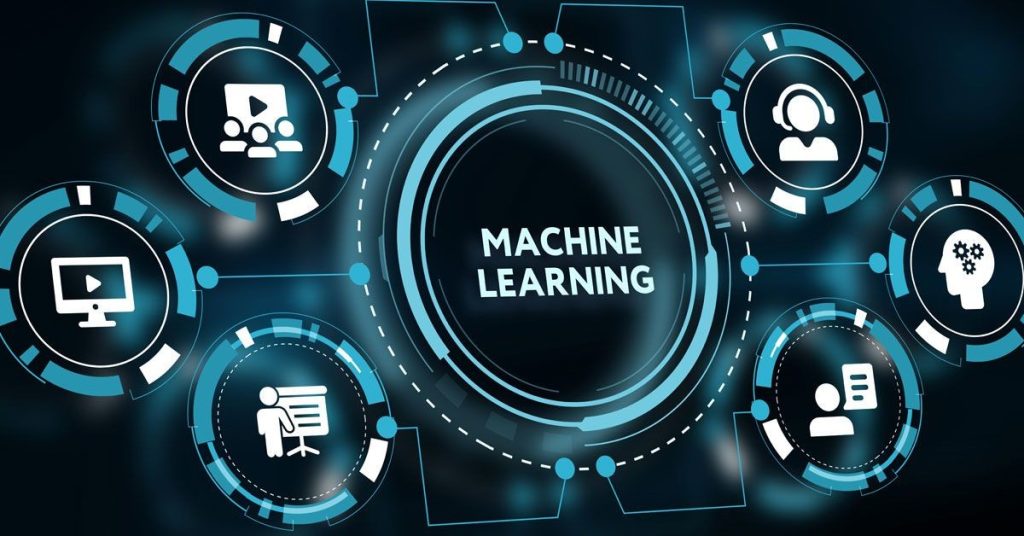Machine learning (ML) is revolutionizing various sectors by enabling systems to learn from data, improve over time, and make decisions with minimal human intervention. This technology is at the core of artificial intelligence and is applied in numerous fields to solve complex problems, enhance efficiency, and drive innovation. This article explores some of the most impactful machine learning applications across different industries.

Healthcare
Machine learning is significantly enhancing healthcare by improving diagnosis, treatment, and patient care. Key applications include:
- Medical Imaging: ML algorithms are used to analyze medical images (X-rays, MRIs, CT scans) for detecting diseases such as cancer, neurological disorders, and cardiovascular conditions with high accuracy.
- Predictive Analytics: By analyzing patient data, ML models predict disease outbreaks, patient admissions, and readmission rates, enabling proactive healthcare management.
- Drug Discovery: ML accelerates the drug discovery process by identifying potential drug candidates, predicting their effectiveness, and optimizing clinical trials.
Finance
The finance industry leverages machine learning to enhance decision-making, manage risks, and improve customer experience. Key applications include:
- Fraud Detection: ML models analyze transaction patterns to detect and prevent fraudulent activities in real-time.
- Algorithmic Trading: Machine learning algorithms analyze market data and execute trades at optimal times to maximize returns.
- Credit Scoring: ML models assess creditworthiness by analyzing a borrower’s financial history and other relevant data, providing more accurate credit scores.
Retail
Machine learning is transforming retail by personalizing customer experiences, optimizing supply chains, and improving inventory management. Key applications include:
- Recommendation Systems: ML algorithms analyze customer behavior and preferences to recommend products, increasing sales and customer satisfaction.
- Demand Forecasting: By analyzing historical sales data and market trends, ML models predict future demand, helping retailers manage inventory and reduce costs.
- Customer Segmentation: Machine learning helps retailers segment customers based on purchasing behavior, enabling targeted marketing and personalized promotions.
Manufacturing
Machine learning enhances manufacturing processes by improving efficiency, quality control, and predictive maintenance. Key applications include:
- Predictive Maintenance: ML models predict equipment failures by analyzing sensor data, reducing downtime and maintenance costs.
- Quality Control: Machine learning algorithms inspect products for defects and ensure high-quality standards are met.
- Supply Chain Optimization: By analyzing demand patterns, ML models optimize supply chain operations, reducing waste and improving efficiency.

Transportation and Logistics
Machine learning is revolutionizing transportation and logistics by optimizing routes, improving safety, and enhancing customer service. Key applications include:
- Autonomous Vehicles: ML algorithms enable self-driving cars to navigate, recognize objects, and make decisions in real-time, enhancing safety and efficiency.
- Route Optimization: Machine learning models analyze traffic patterns and weather conditions to determine the most efficient routes for delivery and transportation services.
- Fleet Management: ML helps in monitoring vehicle conditions, predicting maintenance needs, and optimizing fleet operations.
Marketing and Advertising
Machine learning is transforming marketing and advertising by enabling personalized campaigns, optimizing ad spend, and improving customer engagement. Key applications include:
- Personalized Marketing: ML algorithms analyze customer data to deliver personalized marketing messages, increasing engagement and conversion rates.
- Ad Targeting: Machine learning models optimize ad placements and target the right audience based on their behavior and preferences.
- Customer Insights: By analyzing customer feedback and behavior, ML provides insights into customer preferences and trends, helping businesses tailor their strategies.
Education
Machine learning is enhancing education by personalizing learning experiences, improving administrative efficiency, and supporting educators. Key applications include:
- Personalized Learning: ML models tailor educational content and pace to individual student needs, enhancing learning outcomes.
- Automated Grading: Machine learning algorithms automatically grade assignments and exams, saving time for educators and providing immediate feedback to students.
- Student Performance Prediction: ML analyzes student data to predict academic performance and identify those at risk of falling behind, enabling timely interventions.
Cybersecurity
Machine learning plays a crucial role in cybersecurity by detecting threats, preventing attacks, and enhancing overall security measures. Key applications include:
- Threat Detection: ML algorithms analyze network traffic and user behavior to detect and prevent cyber threats in real-time.
- Anomaly Detection: Machine learning models identify unusual activities and potential security breaches, enabling proactive measures.
- Phishing Prevention: ML algorithms detect and block phishing attempts by analyzing email content and sender behavior.

Conclusion
Machine learning applications are vast and varied, transforming industries and improving everyday life. From healthcare and finance to retail and education, machine learning enhances efficiency, drives innovation, and provides personalized experiences. As technology continues to evolve, the potential for machine learning to address complex problems and create new opportunities will only grow, shaping the future of various sectors and our daily interactions.